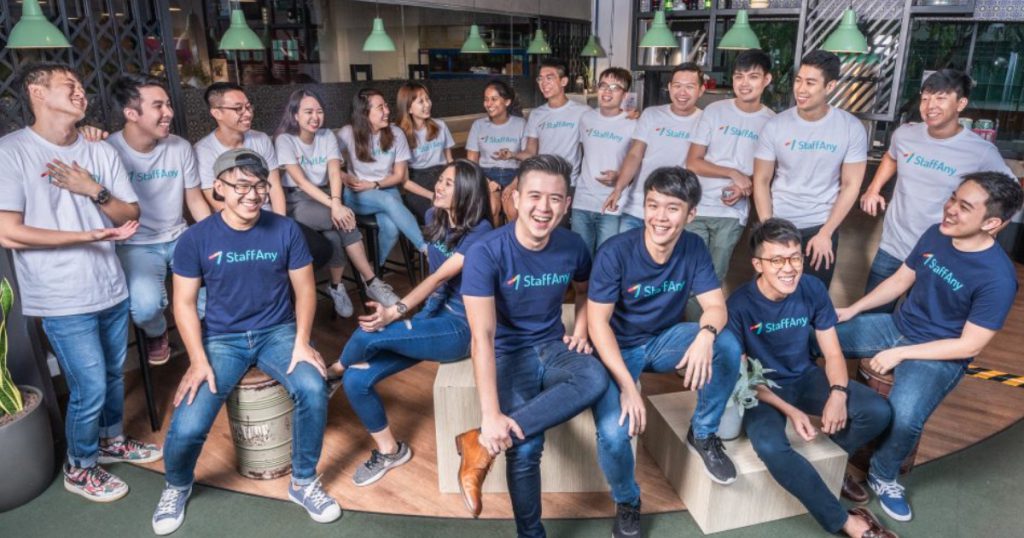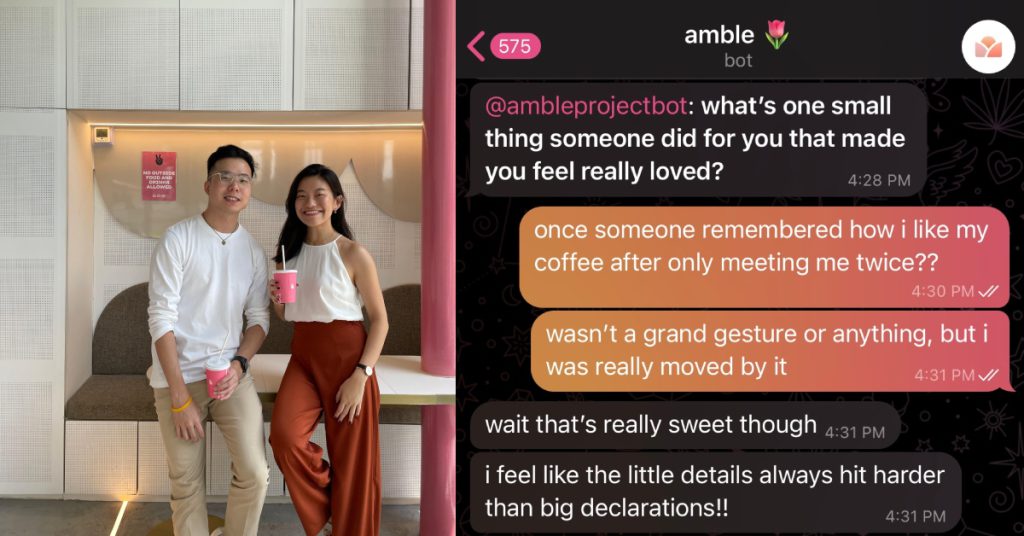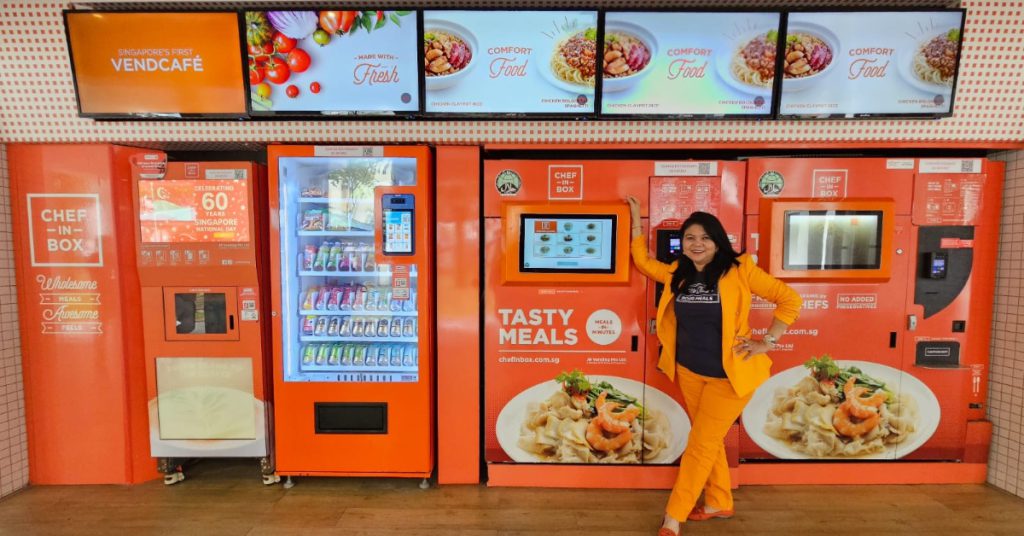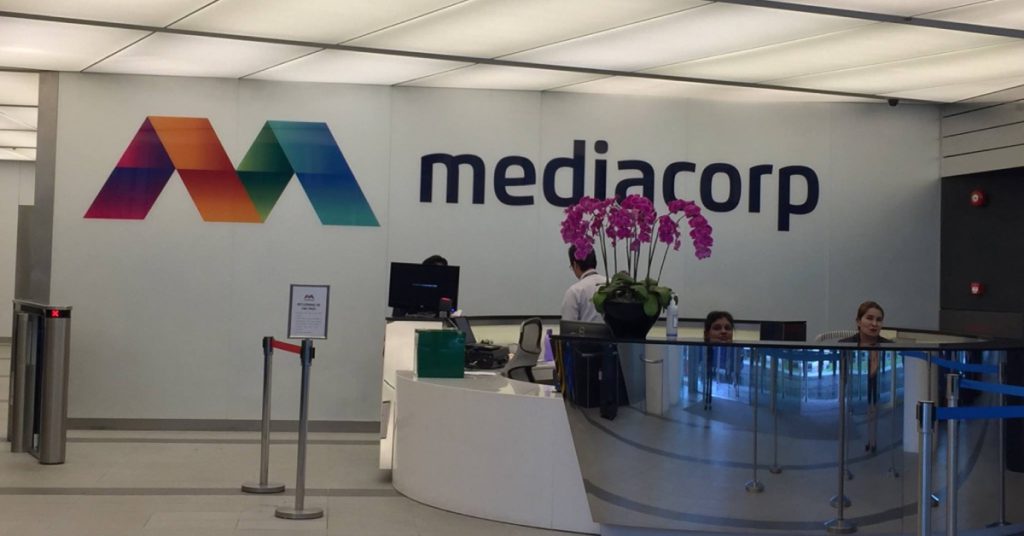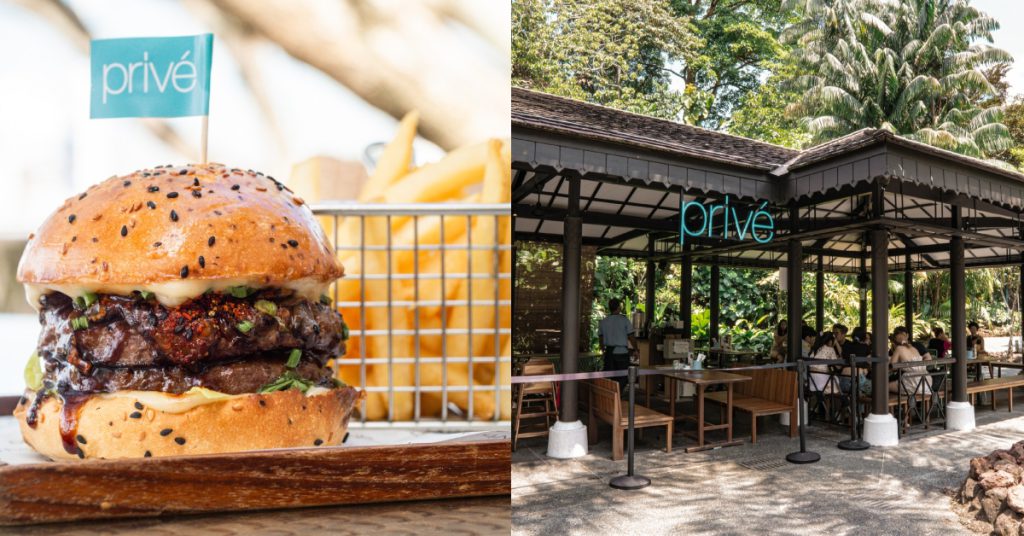It was good news for most Singaporeans when the government announced that the economy was set to reopen on 19 June.
However, the announcement presented a fresh problem for business owners.
They had to ensure that their employees comply with safe management measures or risk being closed. Some of these measures include implementing the national digital check-in system SafeEntry, temperature screening and split team arrangements to minimise contact.
Essentially, this also meant that employees would have to juggle different systems — SafeEntry, their company’s attendance tracking system, a temperature screening log and several other tracking systems. These, more often than not, are inherently troublesome for the worker.
If there is an all-encompassing system that can do all that, wouldn’t that be ideal?
This is where the idea of an app, called CICO, struck local human resources startup StaffAny.
Who Is StaffAny And What Does The CICO App Do?
In 2014, one of StaffAny’s co-founders, Janson Seah worked as the manager of a bar while he was studying for his degree at the National University of Singapore (NUS).
During his time there, he realised that the tools available to manage shift workers were ineffective and this prompted him to co-find a team of fellow NUS students and develop StaffAny while they were at Silicon Valley under the NUS Overseas Colleges programme.
Backed by NUS Enterprise, StaffAny specialises in enterprise software that helps businesses schedule staff, lets staff apply for leave easily, provides an on-site clock, smart timesheets and helps managers generate reports in real-time.

Their clientele ranges from big chains such as Ippudo Ramen, Pezzo Group and Pandora to multi-outlet concepts such as Foreword Coffee and Tadcaster Hospitality, to fast-growing companies such as Wafuken and Populous Cafe.
After COVID-19 struck Singapore, the entire nation had to go into a semi-lockdown and only essential services were allowed to continue their operations.
Some of their clients brought up their pain points regarding the safe management measures.
“This came about through customer conversations, when we realised how worrying it is for business owners who are unsure if staff have clocked-in with SafeEntry and logged their temperatures,” said co-founder Eugene Ng.
They then requested the StaffAny team to build a solution to alleviate their concerns.
The StaffAny team thought of a contactless way to allow employees to clock in and out, record their temperatures and make health declarations while minimising physical contact: a mobile app.

The team spent about four weeks developing the app and pushed out an initial version about one and a half weeks after the SafeEntry requirements came into force.
Called CICO (short for Clock-In, Clock-Out), the app combines elements of the StaffAny workforce management solution, which digitalises attendance process and other key information records for hourly workers into remotely accessible dashboards, with the government’s SafeEntry digital check-in system.
The app automatically redirects users to the SafeEntry website to input the required contact tracing information and sends them reminder notifications if they have not done so.
To support Singapore in its reopening, we have extended our offerings to include keying-in of temperatures and health declaration forms.
– Eugene Ng, co-founder and Head of Growth of StaffAny
For companies that have employees working from home, they also make use of the CICO app as a means to keep track of their employees’ working hours.
150 Sign-Ups In Less Than Three Weeks
They pushed out the full version shortly after and to date, more than 30 per cent of StaffAny’s 100 over clients have been using CICO at about 400 locations around Singapore.
For one of their clients, baking products supplier Phoon Huat, they started using StaffAny’s enterprise software in August 2019 and decided to roll it out to their headquarters in February this year.

“Due to COVID-19, they wanted to switch to a contactless attendance system to minimise physical contact of their staff members,” said Eugene.
“They then implemented CICO and switched out of biometric systems quickly so that they can eliminate the need for employees to touch common surfaces on punch-card machines and biometric systems.”
Cedele, Ippudo Ramen, Pandora and other firms have also implemented the CICO app.
We’ve had more than 150 sign ups in less than three weeks and we are still seeing continuous growth so far.
– Eugene Ng, co-founder and Head of Growth of StaffAny
By developing CICO, it eliminates the hassle of having to log-in multiple times to declare health status and attendance.
In addition to the convenience of the single log-in feature, CICO provides reminders to employees, providing businesses a peace of mind that staff are complying with necessary measures. This sets it apart from any other regular HR software.
With the overwhelming response from SMEs, they have even provided free usage of CICO for companies for the year of 2020, if they sign up before 31 July.
When asked about business challenges, Eugene said that most clients have the impression that such software is complex to set up.
To resolve this, the team has been conducting group webinars on a weekly basis to educate them on how the app works — which could be easily set up within 20 minutes.
Working With GovTech To Join The SafeEntry Programme
StaffAny is currently working with GovTech to join the SafeEntry programme, and this partnership will hopefully help them develop deeper integrations of the CICO software.
The pandemic serves as a catalyst for digital transformation for many SMEs, starting with small steps like adopting the use of workforce management solutions like CICO.
“We are [in talks with GovTech] and awaiting our entry to the SafeEntry Beta programme,” said Eugene.
StaffAny will also keep in close contact with its clients, to ensure the app meets their needs while keeping up with changes to processes or regulations.
Additionally, they had plans for overseas expansion last year but it had to be halted when the pandemic hit. As a result, they refocused their efforts on developing CICO to help local SMEs.
As the COVID-19 situation [eases] in certain countries, we are looking to kickstart and enter the international market again.
Given [CICO’s] traction in Singapore, we hope to [launch in the rest of] Asia such as Malaysia and Hong Kong.
– Eugene Ng, co-founder and Head of Growth of StaffAny
Identifying Gaps In The Existing HR Landscape
This COVID-19 crisis has surfaced weaknesses in the existing digital HR landscape (e.g. lack of integration between systems) but it also offers an opportunity for HR to relook more digital ways of working in a continuously disrupted environment.
At the same time, this pandemic brings a new reality: a high demand for virtual working, with easy, intuitive and ‘pandemic-proof’ systems, accessible at any time from any location.
This is essential in maintaining the continuity of work, as almost every employee is being forced to work from home, or work remotely. Digital HR solutions come in place to help stay connected to employees.
In a bid to keep up with the digital HR landscape, HR solutions companies should increasingly be looking at new offerings that cater to work-from-home arrangements.
In turn, HR departments should continuously identify gaps in their infrastructure and make adjustments in order to thrive.
Organisations that have invested in a flexible and robust HR Technology landscape, were — and still are — able to easily and quickly respond when COVID-19 started impacting their businesses.
Featured Image Credit: StaffAny


